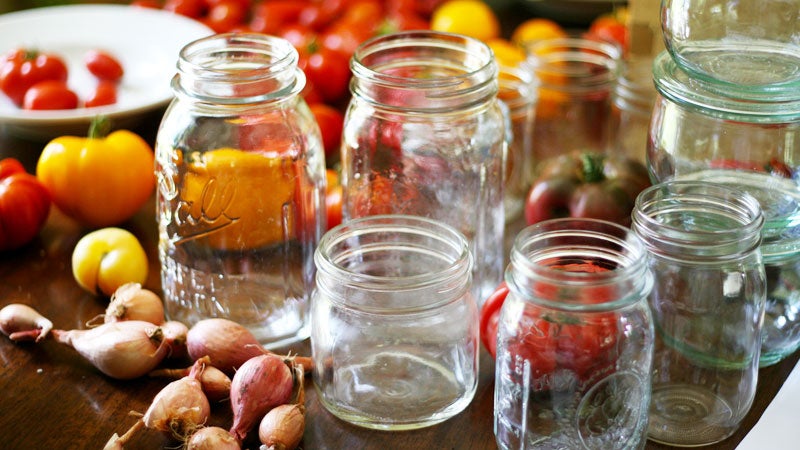Canned food can seem a lot less enticing than fresh produce, but it’s time for you to rethink your shoping habits. A new Michigan State University study because packaging fruit and vegetables at their peak preserves vitamins and minerals.
“In some cases, the canned options actually have more nutrition than fresh or frozen,” said registered dietitian and sports nutritionist Rebecca Scritchfield.
Think of the canned food as fast food, only healthier. An athlete trying to grab a quick bite in between a mid-day run and a work meeting might manage a more balanced meal by making a salad with canned beans, corn, and tomatoes. And buying from the can lets you eat a wide variety of produce year-round, rather than waiting until fruits and vegetables are in season.
“A lot of people discount the canned food aisle and shouldn’t,” said registered dietitian Toby Amidor, a contributor to the Food Network’s and author of the cookbook The Greek Yogurt Kitchen. “There are so many good, nutritious canned foods.”
Here are five canned goods that you should pick up on your next grocery outing:
- Canned fruit, such as pears and peaches, can be an effective pre-workout snack. The natural sugars provide energy without causing stomach distress or a that dreaded heavy, bloated feeling. In addition, the canning process preserves vitamin C. To minimize added sugar, avoid fruit in syrup, and choose produce in water or its own juices. Amidor suggests canned peaches over plain Greek yogurt as an easy pre-workout snack.
- Canned beans provide fiber and an easy source of protein to fuel an athlete’s muscles. “Beans are strongly associated with heart health,” Scritchfield added. Since beans can be harder to digest, they are best used as a post-workout meal. Many time-pressed individuals don’t have the hours to cook dried lentils, but can easily open a can. If salt has been used to preserve the beans and someone is concerned about sodium intake, Amidor suggests rinsing them in water.
- Tuna or salmon are another easy canned food meal for the active individual. The fish are a source of protein and offer healthy fats, iron, Vitamin B, and niacin. Salmon and tuna combat inflammation, which can benefit athletes who are training rigorously, Scritchfield said. Shoppers should look for fish packed in water rather than oil, and consider chunk light tuna over albacore if concerned with mercury intake. Since tuna and salmon are often preserved with salt, athletes might want to watch sodium intake in other meals if eating canned fish regularly.
- Canned vegetables such as string beans, mushrooms, artichokes, asparagus, carrots, or corn are a quick and healthy addition to salads for the active individual. Amidor recommends combining a number of the above canned food for a well rounded salad. “I take a bed of greens and throw on canned string beans and tuna,” Amidor said.
- Tomatoes in canned form can be more flavorful than off-season fresh tomatoes. “The can locks in the freshness so you’re getting the taste of summertime tomatoes,” Scritchfield said. Tomatoes are also one of the foods that actually contain more nutrients in canned form than fresh.


